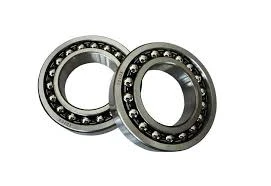
Dec . 26, 2024 23:50 Back to list
bearings for agricultural machinery
Bearings for Agricultural Machinery An Essential Component for Efficiency and Reliability
In the realm of agricultural machinery, the efficiency and reliability of equipment play a crucial role in ensuring that farming operations run smoothly. One of the often-overlooked components that directly affects the performance of these machines is the bearing. Bearings are mechanical devices that allow for smooth movement and reduce friction between moving parts; thus, they are pivotal in enhancing the functionality and productivity of agricultural machinery.
The Importance of Bearings in Agriculture
Agricultural operations involve a wide range of machinery, from tractors and harvesters to seeders and tillers. Each of these machines rely on bearings to facilitate various functions, including rotating shafts and supporting heavy loads. The importance of bearings can be highlighted in a few key areas
1. Reduction of Friction Bearings enable machines to operate smoothly by minimizing friction between moving parts. This is particularly vital in agricultural applications where machinery is subjected to varying loads and speeds. Reduced friction not only increases efficiency but also leads to lower energy consumption in the long run.
2. Support for Heavy Loads Agricultural machinery often bears significant weight due to soil, crop, and equipment loads. Bearings are designed to handle these heavy loads while providing stability and balance to the machinery. This capability is essential, especially during critical seasons like planting and harvesting when the machinery is heavily utilized.
3. Enhanced Durability The harsh working conditions of agricultural environments, such as exposure to dust, moisture, and varying temperatures, can take a toll on machinery. High-quality bearings are constructed to withstand these conditions, providing longevity and reliability to the equipment. Choosing the right bearings can drastically reduce maintenance costs and downtime caused by breakdowns.
Types of Bearings Used in Agricultural Machinery
Various types of bearings are utilized in agricultural machinery, each tailored to meet specific operational needs
bearings for agricultural machinery

- Ball Bearings Known for their versatility, ball bearings can accommodate various load types and are often used in applications where the speed of rotation is crucial. They are commonly found in engine components and gearbox assemblies.
- Roller Bearings These bearings are ideal for heavy-load applications and can handle larger forces than ball bearings. They are often used in axles, wheel hubs, and other areas where significant weight is present.
- Thrust Bearings Essential for applications that involve axial loads, thrust bearings are used in mechanisms that require support for loads acting along the axis of rotation—such as in the transmission of tractors.
- Sleeve Bearings These simpler bearings offer good performance for specific applications and are often found in environments where space is restricted.
Selecting the Right Bearings
When it comes to choosing bearings for agricultural machinery, several factors must be considered - Load Capacity The bearing must be able to support the anticipated loads during operation without failing. - Environment Bearings must be suited for the specific environmental conditions, including exposure to contaminants and moisture. - Speed Requirements Different machines operate at varying speeds; therefore, choosing bearings that can handle these speeds effectively is crucial. - Material The material of the bearings impacts their performance and durability. Stainless steel or polymer bearings may be preferred in corrosive environments.
Conclusion
In summary, bearings are a fundamental component of agricultural machinery that significantly impact efficiency, durability, and overall performance. Selecting the right type of bearing for a specific application can lead to enhanced productivity, reduced maintenance costs, and increased machine lifespan. As the agriculture industry continues to innovate and evolve, the role of bearings will grow increasingly critical. By investing in high-quality bearings and ensuring proper maintenance, farmers can optimize their equipment's functionality and ultimately contribute to successful agricultural outcomes.
Latest news
-
Grooved Ball Bearing Design and Functionality
NewsJun.04,2025
-
Concrete Mixer Bearing Load Capacity Testing
NewsJun.04,2025
-
6004 Bearing Dimensions in Robotic Joint Designs
NewsJun.04,2025
-
Advantages of Single-Row Deep Groove Ball Bearings
NewsJun.04,2025
-
Applications of Deep Groove Ball Bearings in Automotive Systems
NewsJun.04,2025
-
Innovations in Bearing Pressing Machine Design
NewsJun.04,2025
